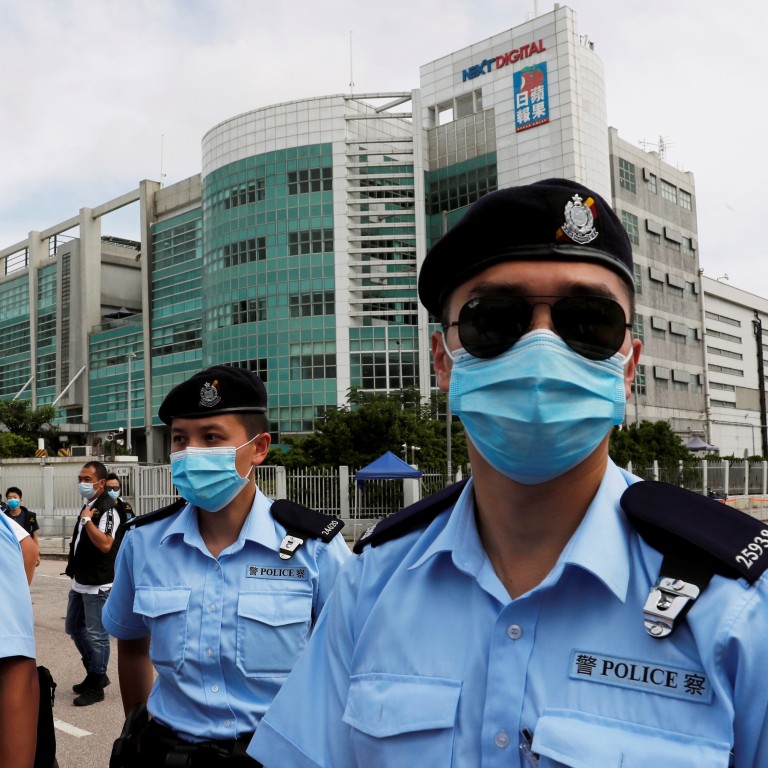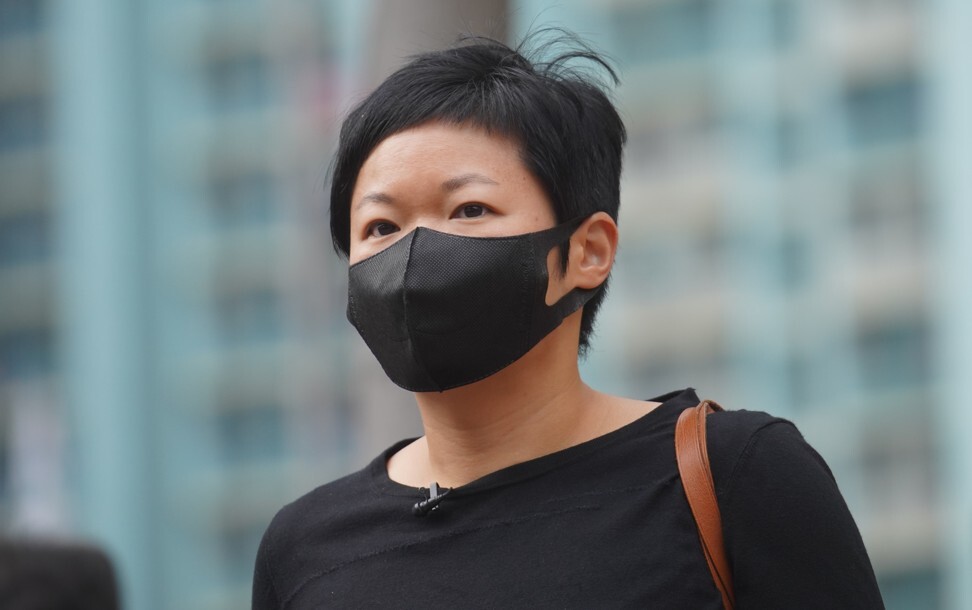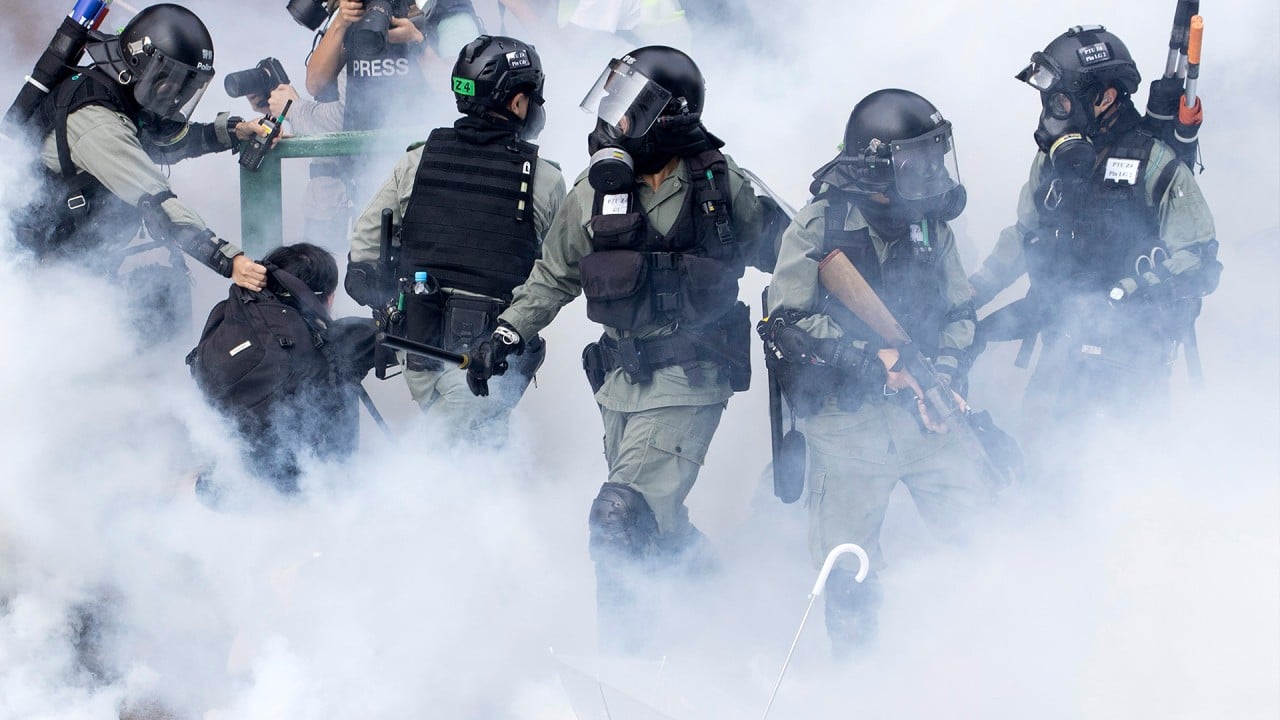
National security law blamed as Hong Kong press freedom slumps to all-time low in journalists’ survey
- Nearly all journalists taking part in the survey said the Beijing-decreed law was harming press freedom
- Prosecution of RTHK contributor and police raid of Apple Daily offices also represented blows to the industry in 2020, index finds
The prosecution of a freelance producer working on a documentary covering a mob attack during the city’s 2019 protests, and the police raid of a media organisation’s offices were among the threats to the industry stated in the joint survey by the Hong Kong Journalists Association (HKJA) and the Hong Kong Public Opinion Research Institute (PORI).
Marking a new low since the study was first published eight years ago, the index for 2020 dropped to a score of 32.1 out of 100, compared with 2019’s 36.2, the nadir at the time.
World Press Freedom Day: reliable information essential in crisis situations
HKJA’s chairman Chris Yeung Kin-hing warned the “the worst is yet to come” as the results of the latest survey were revealed on Monday.
“The chilling effect of the national security law will become more prevalent and intrusive in every aspect of [our society]. I don’t think there’s any room for optimism,” he told a press conference on World Press Freedom Day, predicting the index would drop again.
Up to 85 per cent of the 367 journalists surveyed believe the Hong Kong government is the source of media suppression, according to the study.
A staggering 99 per cent of the respondents said the enactment last June of the national security law had harmed press freedom, with 77 per cent of them indicating the legislation was causing “great damage”.
Asked to rate a list of 2020 incidents for their repercussions for the industry, 99 per cent agreed the prosecution of RTHK contributor Bao Choy Yuk-ling was harmful to press freedom.

Choy ran the database search as part of a documentary investigating the Yuen Long mob attack on anti-government protesters and railway passengers in 2019.
Ninety-eight per cent of respondents told the study that the August 2020 police raid of Next Digital’s office – home of the tabloid-style Apple Daily newspaper – also triggered a further decline of the media industry’s rights.
Yeung also expressed concern that the local administration might want the industry to follow the mainland Chinese model, in which the media “largely plays a propaganda role” for the central government.
He added Hong Kong authorities might be looking to find new ways to curtail the media, including regulating what is deemed “fake news”.
The lack of legislative safeguards for journalists seeking information from public registers, such as company searches, and a hesitancy to criticise the governments in Hong Kong and Beijing had made reporting more challenging, the survey stated.

Meanwhile, the public perception of press freedom in Hong Kong increased slightly to 42.6, according to the index, up from 2019’s lowest-ever 41.9. More than 1,000 residents were surveyed.
The uptick was attributed to fewer incidents of conflict between police and reporters last year, in contrast to the regular clashes during the 2019 unrest.
On a scale of 0 to 10, the public posted a score of 4.1 on whether local journalists were targets of intimidation or physical violence when carrying out reporting activities in 2020, an increase from 3.3 in 2019. A higher score in this measure means the respondent believes the event in question is less likely to happen.
With only 69 per cent of the public believing the national security law was harming media freedoms, Yeung said many people might not realise the legislation’s direct impact and the threat it posed the industry, when compared with journalists.
The law imposed by Beijing on June 30 last year targets acts of subversion, secession, terrorism and collusion with foreign forces.

07:30
China’s Rebel City: The Hong Kong Protests
Also on Monday, public broadcaster RTHK confirmed it would remove shows from its online platforms, including on YouTube, a year after they first aired, and that it would also move to delete content that was more than 12 months old.
Currently, the oldest programme available to view on RTHK’s YouTube channel was broadcast some 13 years ago.
Concerns have been raised among staff and viewers that the new changes were being introduced to rid the public broadcaster’s archives of all previously aired material deemed too critical of the government.
The staff union expressed disappointment that shows reflecting Hong Kong history would no longer be available.
An RTHK spokesman said: “The related arrangement is only in line with the established practice of the RTHK official website providing archive service for programmes in the past 12 months.”
According to the union, RTHK has also decided not to renew the contract of a reporter who has drawn controversy over her tough approach to interviewing officials, which some considered rude. Nabela Qoser is set to leave RTHK at the end of the month.
An RTHK spokesman said: “As a government department, RTHK handles staff issues in accordance with the established mechanism and procedures, including established guidelines of the Civil Service Bureau and the Civil Service Regulations.”
Qoser could not be reached for comment.

